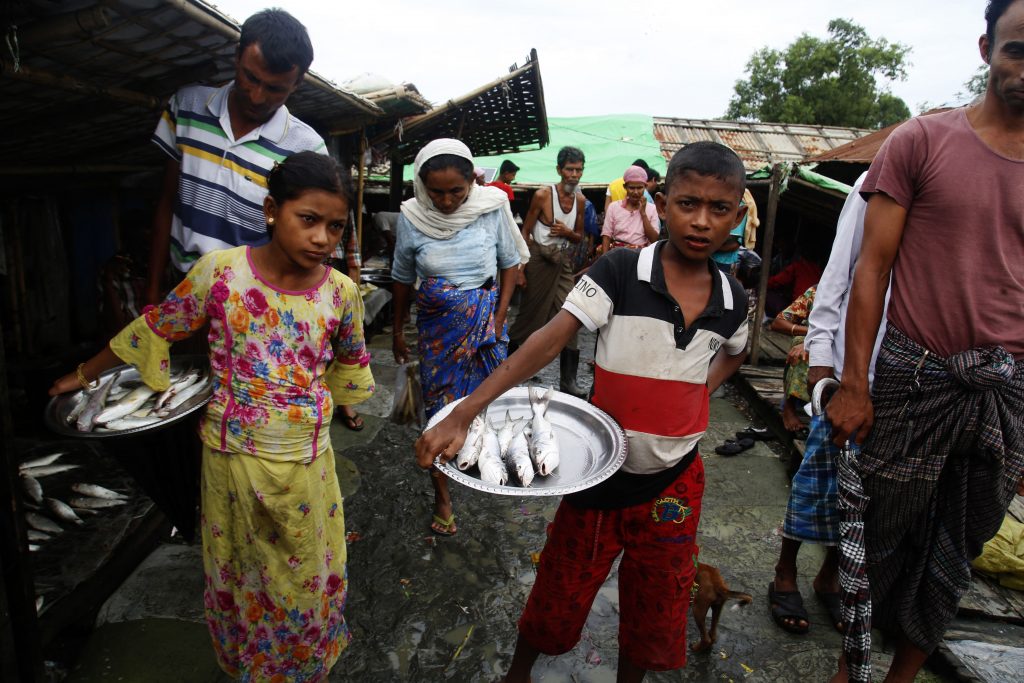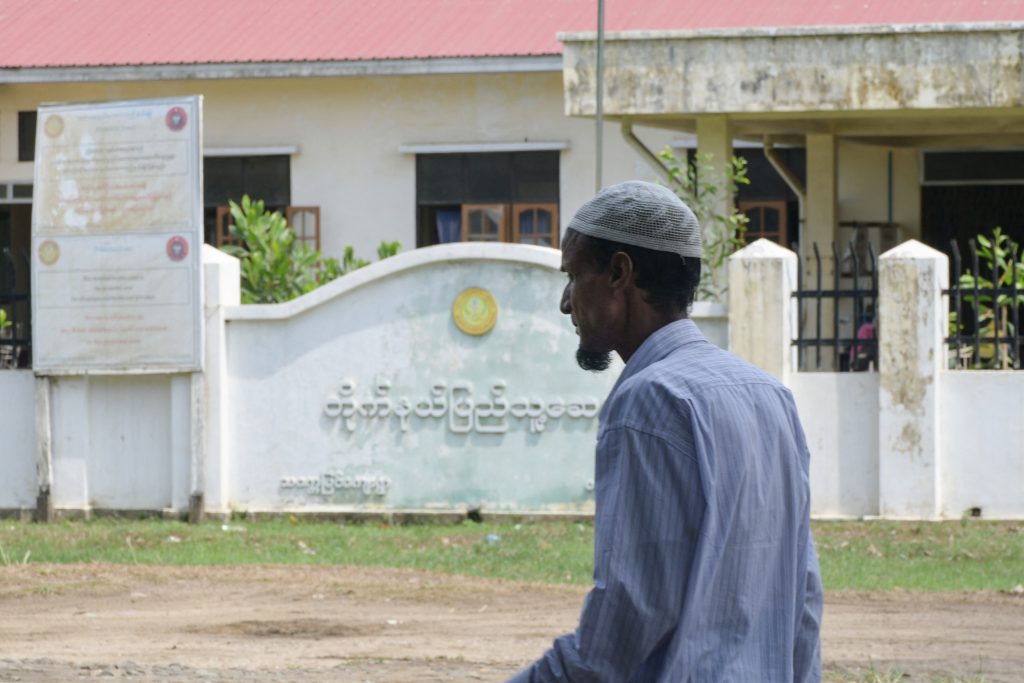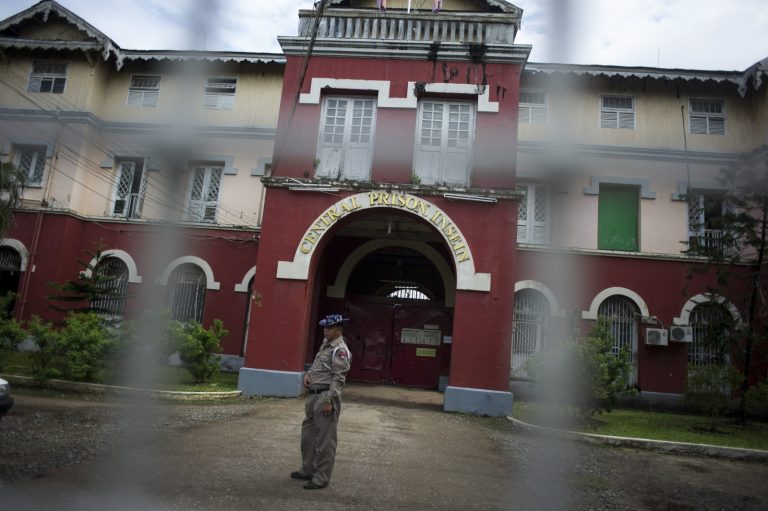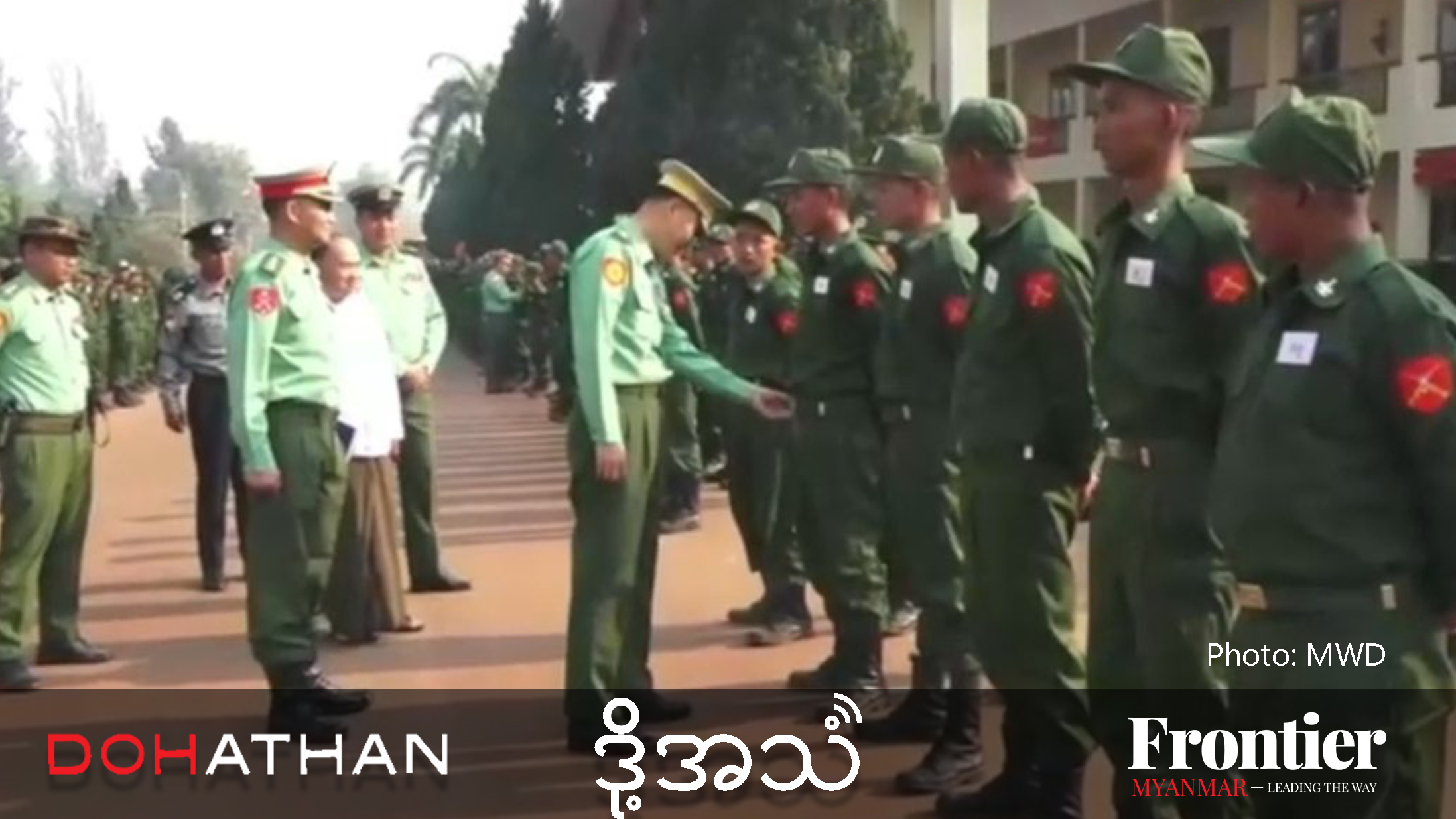The National Unity Government’s plan to end discrimination against the Rohingya and replace the 1982 Citizenship Law could face opposition from among its own supporters – if the parallel government gets the chance to implement it.
By FRONTIER
In early June, the National Unity Government, a parallel administration set up by lawmakers elected last November, issued a new policy on the Rohingya promising to end human rights abuses against them and grant them citizenship.
Discrimination and violence against the largely stateless Muslim minority have been a source of controversy within Myanmar and abroad for decades, and the NUG’s position is already proving divisive.
The United Nations welcomed the change in policy, as have Rohingya leaders. However, some also question whether the NUG can even implement what it has proposed when it is still struggling to be recognised and function as Myanmar’s government.
Due to the military coup, many people who in the past have stridently opposed recognising the Rohingya have remained quiet about the policy. Although some NUG supporters welcomed the new stance, most still seem unwilling to accept extending citizenship rights. Meanwhile, locals in Rakhine State were said to be unhappy they had not been consulted and questioned the NUG’s authority for issuing the policy.
Cautious support for the new policy
Many countries, including the United States, condemned the military coup on February 1 and expressed support for anti-coup protestors and the NUG. Despite this support, NUG representatives engaging with the international community and seeking support have faced tough questions about its position on the Rohingya.
At a May 4 hearing held by the United States House of Representatives’ Foreign Affairs Committee, Myanmar’s permanent representative to the United Nations, U Kyaw Moe Tun, was questioned about the lack of Rohingya representation within the NUG and its position on granting citizenship. Representative Ted Lieu of California sent a clear message: “I cannot support the NUG and will oppose efforts for the United States to support your National Unity Government until you commit to having at least a representative of the Rohingya people and you commit to stopping the genocide.”
On June 3, the NUG released its new policy, which commits to ending human rights abuses against the Rohingya and promises to grant them equal citizenship rights. In just one of the many striking departures from National League for Democracy policy, the statement used the term “Rohingya”. The NLD government had usually called them “Muslims living in Rakhine”, but after Arakan Rohingya Salvation Army attacks on police and military posts in August 2017 it even referred sometimes to “extremist Bengali terrorists”.
The policy says the Rohingya should have the right to citizenship and should enjoy the same rights as other citizens in accordance with human rights law and in line with the principles of federal democracy. The NUG also promised that once a new constitution is drafted it would repeal laws used to repress the Rohingya, including the 1982 Citizenship Law, which discriminates against the Rohingya and other ethnic groups deemed non-indigenous. It also said it would abolish the National Verification Card process – the current pathway to citizenship for the Rohingya, but one that they have largely rejected. “This new Citizenship Act must base citizenship on birth in Myanmar or birth anywhere as a child of Myanmar citizens,” the policy states.
If we want to build a federal democratic country, we must respect an individual’s basic rights including the rights of Rohingya.
Ko Soe Aung, Yangon University student
The policy should help to address the concerns of some sections of the international community that had been reluctant to support the NUG because of the NLD’s past position on the Rohingya.
While Rohingya activists also welcomed the policy, some expressed concern over aspects of it that remain unclear.
At a virtual press conference on June 4, U Aung Myo Min, the newly appointed human rights minister, said discussions are underway to include a Rohingya adviser on the NUG advisory board. But he seemingly contradicted the NUG’s new position when he said that only those Rohingya who have the right to become citizens will receive citizenship.
His comments worried Rohingya activists who questioned how citizenship rights will be granted and why the NUG, which has already abolished the 2008 constitution, would not immediately repeal the 1982 Citizenship Law.
When it comes to the rights of the Rohingya, releasing a policy statement is not enough, said former lawmaker and Rohingya activist U Shwe Maung in an interview with Radio Free Asia on June 5. “I and all Rohingya people want [the NUG] to declare a presidential proclamation which officially recognises all Rohingya as legal residents of Myanmar,” he added.
Muslims in Myanmar have also cautiously welcomed the NUG statement. A recently formed group, the Muslims of Myanmar Multi-ethnic Consultative Committee (MMMCC), said it supported the policy but, like Shwe Maung, was concerned that the NUG had not already repealed the 1982 law. Spokesman U Kyaw Win said he was worried the NUG planned to keep some provisions from the current law when it drafts a new one.
On June 19, representatives of the MMMCC held a meeting with the NUG, during which they made several demands of the parallel administration. These included declaring that genocide had been committed against the Rohingya and others in Myanmar; allowing an MMMCC representative to participate in drafting the new constitution; and appointing two Muslim representatives to the National Unity Consultative Committee, an advisory body to the NUG.
The NUG has not yet publicly commented on the meeting, much less indicated that it will accede to these requests.
Open sympathy among youth
Until the military coup, few people in Myanmar were willing to publicly express support for the Rohingya’s quest for citizenship, or to speak out against the discrimination they face. However, since February 1 – and especially after the junta’s brutal crackdown on unarmed, peaceful protestors – some young activists and student unions began to express sympathy for the Rohingya. They also expressed regret at having stayed silent when more than 740,000 Rohingya fled to Bangladesh in 2017 to escape a brutal Tatmadaw counterinsurgency campaign.
“I welcome the NUG’s stance of guaranteeing the protection of human rights in line with international human rights law. If we want to build a federal democratic country, we must respect an individual’s basic rights including the rights of Rohingya,” said Ko Soe Aung, a Yangon University student.
Ko Thura Aung, a young protester, told Frontier he thought it was unfair to pin these problems on the NLD or the NUG, pointing out that the military was responsible for introducing and enforcing the discriminatory laws and policies. But he was open to the NUG’s approach. “We should welcome the policy, which will help to create a better image of our country around the world,” he added.
On June 13, thousands of youth showed their solidarity by participating in an online campaign against the military dictatorship initiated by the Free Rohingya Coalition, a global network of Rohingya activists and allies. The organisers encouraged participants to wear black and to share photos and messages of support on social media platforms like Facebook, Twitter, and Instagram using the hashtag #Black4Rohingya. On Facebook, over 4,000 people posted with the hashtag, while on Twitter there were 500,000 tweets.
Ma Ei Khun Cho, who participated in the campaign, wrote on her Facebook account: “As a Myanmar citizen, as a human, don’t discriminate [based on] religion or race. Humans are just humans. And I am going to keep fighting until justice prevails for all of us. No more racism.”
In some parts of Myanmar, youth also showed their support on the street with flash mob protests during which they held signs with the slogan, “The fate of the Rohingya must be realised by the Rohingya.”
The campaign was a remarkable show of support, since few people in Myanmar were even willing to use the word “Rohingya” before the coup. Journalists and activists covering discrimination and violence against the minority had also faced bitter criticism.
Even after the one-day campaign, young people have continued to post photos on Facebook accompanied by the text: “Rohingya are one of the most persecuted minorities in Myanmar. They have been losing their families, friends, properties, and human rights for decades. I didn’t know. I didn’t try to know. I didn’t speak out loud for them. So, this is my apology to all persecuted minorities in Myanmar including Rohingya, Chin, Kachin, Kayin, Kayah, Rakhine. And I’m going to keep fighting until justice prevails for all of us.”

Cool reception elsewhere
Not everyone shares these sentiments, however.
Typically, NUG announcements and statements are widely shared and commented on by social media users. The fact that the release of the Rohingya policy generated little public reaction from opposition supporters is telling. When discussions did occur – such as on the NUG Facebook page – they were fairly muted.
Although many have kept their views to themselves, it doesn’t mean that they agree with the NUG’s position.
“I want to make it clear that I do not support the NUG on the Rohingya issue. This is not even a priority at the moment. It is also not directly related to the demands of the people’s uprising, such as the establishment of a federal union and the restoration of democracy,” said a 45-year-old NLD supporter, who did not want to be identified but has led a number of civil society initiatives for political research and education.
He questioned the authority of the NUG to begin using the term “Rohingya” given that State Counsellor Daw Aung San Suu Kyi had always said “Muslim community”. He also expressed doubt that the majority of NUG supporters would back repealing the 1982 Citizenship Law.
“The NUG’s policy statement is more like a party campaign statement endeavouring to get support from the West. For me, I totally reject the policy,” he said.
But the silence also reflects that hatred for the military runs so deep that the policy, even if unpopular, is unlikely to result in many switching their support to the regime.
When junta spokesman Major-General Zaw Min Tun raised the issue at a press conference on June 12, declaring the policy a “time bomb” that would destroy other recognised ethnic groups, or “national races”, his comments gained little traction. However, there is a risk they may energise the Tatmadaw’s base, particularly former members of extremist Buddhist group Ma Ba Tha, some of whom have since reportedly joined a shadowy paramilitary network known as Pyusawhti.
Reactions in Rakhine
The NUG has said it consulted many different stakeholders in Rakhine State, including Rohingya and refugee representatives, and that the policy would all people in the state.
“Recognising the Rohingya does not discriminate against those in Rakhine State. Everyone involved in the affairs of the Rakhine issue will be consulted in the implementation of the policy,” said NUG minister Aung Myo Min at the June 4 virtual press conference.
But Rakhine leaders said they were not consulted by the NUG before it drafted the policy and many appear to be unhappy at the lack of dialogue. “Neither the NUG nor the NLD government represent Rakhine people. 90 percent of Rakhine people will follow the leadership of the United League of Arakan/the Arakan Army (ULA/AA),” said U Khaing Kaung San, the executive director of Wan Lark Rural Development Foundation, a well-known social welfare group in Rakhine State. He said that his organisation had not been consulted on the policy.
The AA has not publicly responded to the NUG policy. Its spokesman Khine Thua Kha said to Frontier that the group had no comment at this time.
But other groups have been quick to oppose the NUG’s position on the Rohingya. On June 6, the All Arakanese Solidarity Committee released a statement criticising the new policy, which it argued would further complicate the crisis in Rakhine State and destabilise the current peace and stability. It strongly condemned the NUG for using problems in Rakhine State to develop a political platform during the post-coup crisis.
“The NUG’s policy statement is more like a party campaign statement endeavouring to get support from the West. For me, I totally reject the policy,”
National league for democracy supporter
The Arakan State Liberation Party (ALP), a Rakhine armed group that signed the Nationwide Ceasefire Agreement in October 2015, issued a statement on June 5 saying it welcomed the NUG’s goal of building a federal union to end conflicts, but warned that issues in northern Rakhine State should not be rushed. The ALP said it would not accept any organisation intervening without the consent of the Rakhine people.
“Whatever their statement is, it is their responsibility if they do so without consulting the Rakhine people’s leaders,” ALP spokesman Lieutenant Colonel Khaing Kyaw Hlaing said.
Khaing Kaung San however agreed with the NUG’s policy on the Rohingya. “I have advised successive governments to grant citizenship to Muslims in Rakhine State. I do not dispute this point. But in this case, the people in Rakhine State need to be consulted,” he said.
He added that most people are not very worried about the NUG policy because they are confident it cannot implement anything on the ground at the moment. “They can only work online through a series of discussions with various groups and by releasing statements,” Khaing Kaung San said. “We don’t see any practical work they could do in Rakhine State.”
‘It will be discussed later’
The NUG minister Aung Myo Min explained at the press conference that the government was using the term “Rohingya” to respect the wishes of the members of the community to be identified as such. As to whether the NUG will recognise the Rohingya as an indigenous ethnic group – a contentious issue, as those who are deemed indigenous automatically qualify for full citizenship – he said that “it will be discussed later”.
Domestic political analysts also welcomed the policy shift but cautioned that it may not be a good time for the NUG to tackle such a sensitive issue while it is trying to overthrow the military regime. They suggested that Rohingya activists should limit their demands to citizenship rights and defer discussion on recognising the Rohingya as an ethnic group.
If excessive demands are made “it can lead to instability in Rakhine State by instigating [ultra-nationalist groups] on race and religious matters”, argued U Than Soe Naing, a local political critic.
He thought that international pressure on the NUG may have been a factor in the new policy, but he doubted whether it will actually help it win recognition. “To be a legitimate government, they must first have a liberated territory and a constitution,” he said.
Rather than pushing the Rohingya issue specifically, the NUG should affirm the rights of all citizens by guaranteeing through a new constitution respect for diversity, individual liberty and freedom of religion, and working towards a federal democratic union that reflects the demands of the people, Than Soe Naing said.
Another political analyst, U Khin Zaw Win, director of the Tampadipa Institute in Yangon, which works on communal and land issues and human rights, welcomed the NUG policy. He said the NLD government had largely ignored the Rohingya during its five years in office.
“You can ignore an issue for years or decades, hoping it will disappear. But when it involves millions of people and much death and destruction, it usually doesn’t. In such cases, the legacies of the past come back doubled to haunt the present. Such is the case with Rakhine,” he said.
Khin Zaw Win cautioned that while a genuine pathway to citizenship for the Rohingya was long overdue, the NUG would likely face resistance, including from its own supporters.
“As welcome as the announcement is, making it happen is another matter. With the multiple crises that Myanmar is beset with, any move taken in Rakhine can have only transient results, good or bad,” Khin Zaw Win said. “Realism dictates that carrying it out will have to wait until a more appropriate time.”







